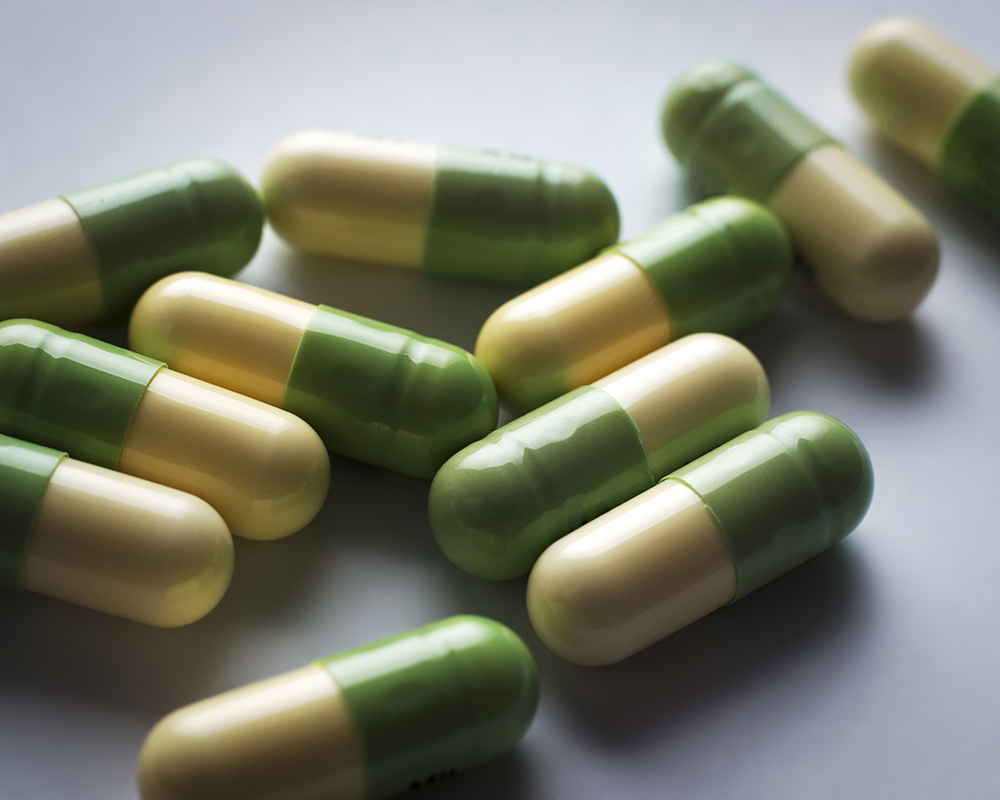CCHR raises concerns about antidepressant prescribing to children that could drive up suicides, according to new studies.
LOS ANGELES - March 4, 2024 - PRLog -- A new study published in the journal Pediatrics has revealed that the antidepressant dispensing rate to youths since March 2020 has risen 64% faster than normal. In female adolescents ages 12 to 17, the dispensing rate increased an alarming 130% faster.[1] The Citizens Commission on Human Rights International, a mental health industry watchdog, warns this is an irresponsible prescribing trend given the Food and Drug Administration's (FDA) 2004 warning that antidepressants in youths could induce suicide.
Adding further concerns is another study published in BJPsych Open that found increased antidepressant prescribing is not associated with a reduction in depressive symptoms and, indeed, "treatment with antidepressants is unlikely to be effective."[2]
Since 1999, there has been a dramatic surge in the use of antidepressants, making them one of the most widely prescribed pharmaceuticals in the United States. According to the Berkely Political Review, approximately one in six Americans are now taking antidepressants, with over a quarter of them being long-term users.[3]
Youths may be unaware of the suicidal thoughts the drugs may induce. A recent study published in Crisis: The Journal of Crisis Intervention and Suicide Prevention found a correlation between the increase in antidepressant drug use and suicide rates over time.[4] Another study published in Ethical Human Psychology and Psychiatry reviewed reports on nearly 8,000 coroners' inquests and found that antidepressants were linked to 2,718 cases of hanging, 933 overdose deaths and 979 suicides. The study concluded that antidepressants are "ineffective for many people."[5]
There are also serious withdrawal effects. A study published in Psychiatry Research in August 2023 reported that approximately half of the millions of people currently taking antidepressants will experience withdrawal symptoms when they try to reduce or come off them. John Read, Ph.D. and colleagues noted, "Antidepressant withdrawal is characterized by physical and emotional symptoms that can emerge days, weeks or months after stopping antidepressants" and which can often be misdiagnosed as returning depression.[6]
Adding to the problem is combining psychotropic drugs. Thomas Moore, a researcher at the Center for Drug Safety and Effectiveness at Johns Hopkins University is concerned about the practice of combining drugs like amphetamines and methylphenidate, the active ingredient in the stimulant Ritalin. "Some physicians may prescribe stimulants to treat the side effects of other psychiatric medications or to enhance them. That is sometimes called a "prescribing cascade," Moore said. "An antidepressant is prescribed for a patient and maybe one of the side effects is sedation, and so they add a stimulant, like amphetamines."[7]
The U.S. is most at risk because, as a Yale Journal of Biology and Medicine study reported since direct-to-consumer (DTC) advertising was approved by the FDA in 1997, pharmaceutical companies have exaggerated claims of drug efficacy, downplaying the health risks of antidepressant use and "hiding behind smokescreen public relations slogans of medical 'awareness campaigns,' while slyly growing drug markets by over-medicalizing everyday experiences such as sadness, anxiety, and shyness."[8]
For decades that "public awareness" campaign told people they needed antidepressants to correct a chemical imbalance in the brain that doesn't exist. A groundbreaking University College London (UCL) study in 2022 washed that theory down the drain. Lead author Professor Joanna Moncrieff and colleague Mark Horowitz wrote, "People accepted what they were told. And many started taking antidepressants because they believed they had something wrong with their brain that required an antidepressant to put right…. Our study shows that this view is not supported by scientific evidence.[9] The chemical imbalance myth helped drive the $17 billion-a-year global antidepressant sales.[10]
More studies are debunking the predominant biomedical model theory used in psychiatry. A study published in the Journal of Affective Disorders examined 5,872 cases and 43,862 controls involving 22,028 genes, concluding that "no gene or gene set produced a statistically significant result" influencing a "mood disorder."[11]
In a study published in Neuron in 2022, Raymond Dolan—one of the most influential neuroscientists in the world—and his co-authors, reflecting on the more than 16,000 neuroimaging studies published during the last 30 years, determined, "Despite three decades of intense neuroimaging research, we still lack a neurobiological account for any psychiatric condition."[12]
A 2022 Boston Review overview of two books on psychiatry's failed search for a biological model, noted that after 30 years, "We still have no biological tests for psychiatric disorders, and none is in the pipeline."[13]
CCHR says the ongoing reliance of biomedical drug models to treat youth problems is a tremendous disservice to them and safe alternatives should be made available to them. According to the IQVia Total Patient Tracker Database, 6.1 million children and teens are prescribed psychiatric drugs in the U.S. Of these, 2.1 million aged up to 17 are prescribed antidepressants and 5.7 million are in the 0–24-year range—to which the FDA suicide warning applies.[14] The drugging is so rampant that Jan Eastgate, President of CCHR International says it could be likened to "overdosing" America's youth—putting their young lives at risk of toxic and suicidal effects.
About CCHR: CCHR was founded in 1969 by the Church of Scientology and the late Dr. Thomas Szasz, Professor of Psychiatry and prolific author of books on psychiatry. It campaigned for 13 years for the FDA black box warning about antidepressant-induced suicide and obtained a federal law in 2004 banning forced psychotropic drug use in schoolchildren.
[1] www.cnn.com/2024/02/26/health/antidepressant-use-spikes-after-pandemic-youth-wellness/index.html
[2] www.madinamerica.com/2024/02/global-study-questions-antidepressant-use-points-to-social-determinants-of-mental-health/ citing www.ncbi.nlm.nih.gov/pmc/articles/PMC10594156/
[3] bpr.berkeley.edu/2021/11/07/americas-epidemic-of-antidepressants/
[4] www.madinamerica.com/2024/02/antidepressant-use-tightly-correlates-with-increased-suicide-rates/
[5] connect.springerpub.com/content/sgrehpp/25/1/8
[6] www.sciencedirect.com/science/article/pii/S0165178123002536
[7] www.nbcnews.com/health/health-news/ritalin-amphetamines-often-prescribed-antidepressants-research-finds-rcna81406
[8] www.ncbi.nlm.nih.gov/pmc/articles/PMC3313530/
[9] economictimes.indiatimes.com/magazines/panache/keep-the-antidepressants-away-new-study-says-chemical-imbalance-in-brain-isnt-causing-depression/articleshow/93029558.cms?utm_source=contentofinterest&utm_medium=text&utm_campaign=cppst
[10] www.cchrint.org/2022/07/22/cchr-lauds-study-disproving-chemical-imbalance-causes-depression/; www.dailymail.co.uk/news/article-11035903/Expert-says-psychiatrists-KNOW-theory-low-serotonin-levels-cause-depression-incomplete.html
[11] www.madinamerica.com/2024/02/psychiatrys-discredited-theories/
[12] www.madinamerica.com/2024/02/psychiatrys-discredited-theories/; pubmed.ncbi.nlm.nih.gov/35981525/
[13] www.bostonreview.net/articles/mental-illness-is-not-in-your-head/
[14] www.cchrint.org/psychiatric-drugs/children-on-psychiatric-drugs/; www.cchrint.org/psychiatric-drugs/people-taking-psychiatric-drugs/
Photos: (Click photo to enlarge)

Source: Citizens Commission on Human Rights International
Read Full Story - "Overdosing" America's Youth: The Dangerous Trend in Antidepressant Prescribing | More news from this source
Press release distribution by PRLog




